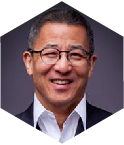

|
For Patients
Good communication with clinicians:
Can help lessen pain and physical symptoms
Improve a patient's adjustment to illness
Increase adherence to treatment
Result in higher satisfaction with care
|
For Clinicians
Good communication skills:
Help clinicians enjoy and thrive in their work
Are associated with less stress and burnout
Result in fewer malpractice claims
|
The course is composed of a series of tasks. Once you begin, for each task you'll see a message telling you what work you need to do. You'll do all your work right in the course website, and will have the opportunity to compare your work against experts' responses. You'll do things like:
|
Plan for an effective meeting with a patient |
Watch videos of clinicians meeting with patients and provide advice on what they could do differently |
Create a toolkit of practices you'll use with your own patients |

|
Task structure
This highly interactive course is divided into a series of 15 tasks, each of which you should plan on spending approximately 20-30 minutes to complete, for a total of about 6 hours. Each task starts with a message explaining the work you need to do; then usually you have the option of either starting your work or accessing the learning resources to help you before you start. These learning resources are always available so you can learn whenever you're curious and ready. While we recommend that you complete each task in one sitting, you can take breaks whenever you need. You'll automatically return to where you left off. Learning resources
Learning resources, including modeling videos, expert advice videos, research articles, and websites are available for you to learn about each of the skills addressed in this course. As you do your work, click on the “Learning Resources” button to find this material.We also strongly recommend that you purchase the book Mastering Communication with Seriously Ill Patients: Balancing Honesty with Empathy and Hope by Anthony Back, Robert Arnold and James Tulsky to supplement the resources you can access within the course website. The course is designed for you to seek out learning resources proactively, whenever during each task you're most curious to learn. We encourage you to spend time with these resources to help you do better on your task assignments, and more importantly, to help you improve in your real world practice. Partnering
While you can use this course alone, you'll get more out of the experience if you find a learning "buddy." Many studies demonstrate that people learn more effectively if they can trade insights with a peer during the learning process. For example, you could agree with your buddy to work on a task, and set a date to spend 15 minutes sharing insights over a cup of coffee. Not only does this give you an incentive to do the next step, the act of articulating your insights will help you learn more. Even if you work with a buddy, you'll work on each task individually. It takes work
In this program, you’ll learn as much as you try to learn. You could do the work without accessing the learning resources at all, in which case, you won’t learn a whole lot. On the other hand, if you take it upon yourself to explore and use what you learn from the learning resources – if you really test your intuitions and try your best – you’ll find terrific insights, lessons learned, modeling, and research available to learn from. Want more?
If you love what you're learning to do, more online courses will be available, and consider joining an in-person, extended workshop where you'll learn to do even more with a community of your peers, led by experts from the Vital Talk team. |

|



